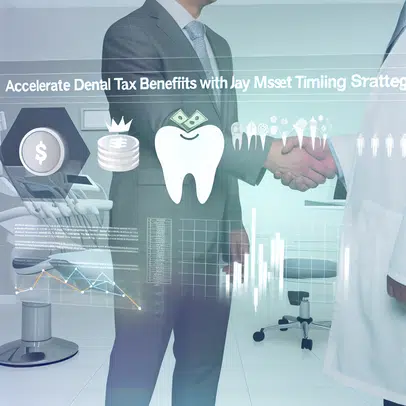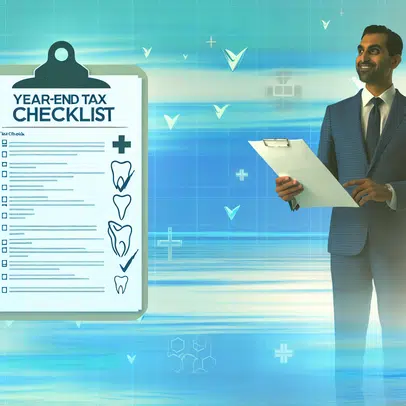Why Now Is the Time for Dentists to Get Strategic
As April 15 approaches, many dental professionals find themselves scrambling to organize their finances. But if you’re only meeting with your CPA once a year, chances are you’re overpaying. According to Jay Malik, seasoned tax strategist and founder of Less Tax for Dentists, “Last-minute filing isn’t tax planning—it’s damage control.”
If you’re a dentist looking to hold onto more of what you earn, now is the perfect time to act.
1. Max Out Retirement Contributions Strategically
Retirement accounts remain one of the most powerful tools for reducing taxable income—and dentists often underutilize them.
Jay often recommends:
- Maxing out 401(k) or solo 401(k) contributions—including both employee and employer portions
- Considering a Cash Balance Plan if you’re already maxing out traditional retirement options and have high profits
These strategies can reduce your taxable income by tens of thousands of dollars annually while growing your retirement nest egg.
2. Accelerate Business Expenses (Where It Makes Sense)
If you anticipate a higher income this year than next, it may be smart to accelerate certain expenses before year-end. Jay advises dentists to look for deductible purchases that also benefit their practice’s growth.
This might include:
- Purchasing or upgrading dental equipment
- Paying for annual software subscriptions in advance
- Scheduling maintenance or training before the deadline
It’s not about spending just to get a deduction—it’s about aligning business strategy with tax reduction.
3. Use the Augusta Rule for Home Office Deductions
If you’ve ever used your home to host business meetings or events—think team planning sessions or CE courses—the Augusta Rule might help.
This strategy allows you to:
- Rent your personal residence to your practice (S-Corp or LLC) for up to 14 days per year
- Deduct the rent paid as a business expense—without reporting the income personally
“As Jay Malik often advises, this is a perfectly legal way to shift income from your taxable bucket to a non-taxable one—if done correctly and documented properly.”
4. Check Your Entity Structure
Are you still operating as a sole proprietor? You may be leaving money on the table.
By forming an S-Corp and paying yourself a reasonable salary, dentists can potentially:
- Reduce self-employment taxes
- Increase retirement contributions
- Split earnings between salary and distributions
If your net income is over $100,000, this switch can put thousands back in your pocket annually.
5. Don’t Let Depreciation Slip Through the Cracks
Large equipment purchases and office buildouts can be significant deductible assets—if you apply the right depreciation strategy.
Bonus depreciation and Section 179 expensing can allow for:
- Immediate deduction of qualifying assets, rather than spreading them over years
- Lower taxable income in the current year
Work with a specialized dental tax consultant to make sure you don’t miss out on accelerated depreciation options.
Bonus Tip: Track Mileage and Travel the Smart Way
If you’re attending out-of-town CE or visiting potential suppliers or collaborators, your travel could be deductible.
Just be sure to:
- Keep detailed records of purpose and dates
- Separate business vs. personal days
Even a few business trips a year can add up to meaningful deductions—another way to keep more of your earnings.
Get Dental-Specific Tax Guidance Before It’s Too Late
Jay Malik and the team at Less Tax for Dentists specialize in strategies tailored specifically for dental professionals. Tax planning is not a one-size-fits-all process—and generic advice may cost you thousands.
“The earlier you plan, the more control you have,” Jay emphasizes.
Before April 15 arrives, take the time to partner with a tax strategist who understands the unique financial landscape of dentists. Your future self—and your growing practice—will thank you.




